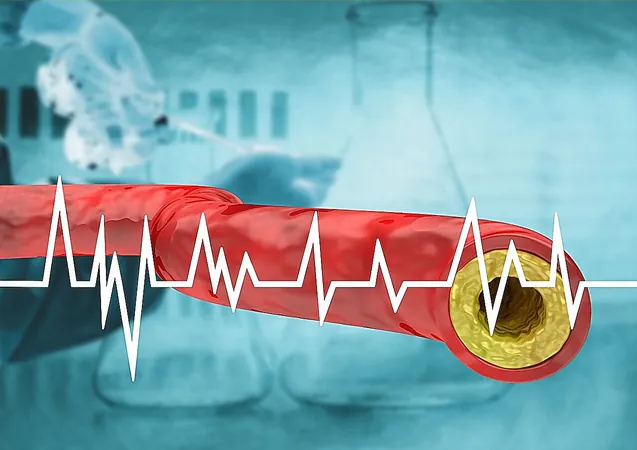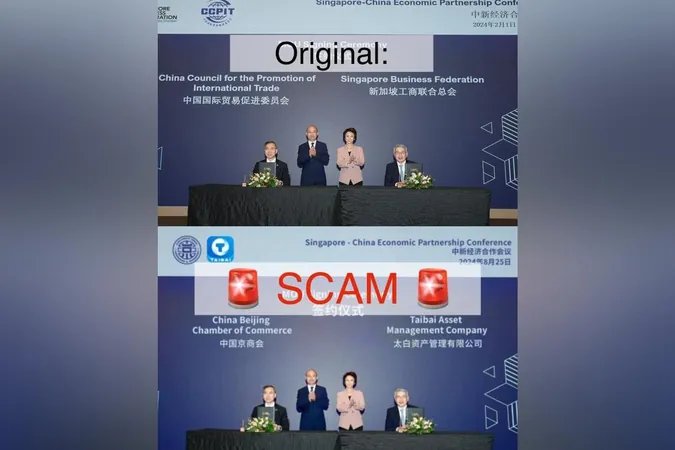
Revolutionary Scoring System Promises to Reduce Unnecessary Surgery for Clogged Arteries
2025-04-24
Author: Rajesh
New Hope in Stroke Prevention
A groundbreaking scoring system could change the way clogged arteries are treated, potentially saving patients from unnecessary surgeries that often lead to serious complications like strokes. Recent research highlights the efficacy of this innovative approach, which promises a safer alternative to traditional surgical procedures.
Introducing the Carotid Artery Risk (CAR) Score
Dubbed the Carotid Artery Risk (CAR) score, this new method identifies patients who could benefit more from a tailored mix of medications and lifestyle adjustments rather than undergoing invasive surgeries. According to a study published in the May issue of The Lancet Neurology, patients managed with this scoring system experienced minimal rates of strokes and heart attacks in the initial two years of the clinical trial.
The Case Against Surgery
Remarkably, the study revealed that patients who did undergo surgery to clear clogged arteries did not enjoy significant health benefits from the procedures. Senior researcher Dr. Martin Brown, an emeritus professor at University College London, stated, "While further follow-up is essential, the CAR score can effectively identify patients whose condition can be managed with optimized medical therapy without the need for surgery."
Personalized Treatment and Cost-Efficiency
This personalized approach emphasizes precise risk assessments and intensive treatment for vascular health without subjecting patients to the discomfort and dangers of surgery. Dr. Brown further noted that this method could lead to considerable cost savings for healthcare systems, making it a win-win solution.
Clinical Trial Insights
The clinical trial assessed 428 participants aged 18 and older, all exhibiting symptoms of artery blockage. Participants hailing from 30 hospitals across the U.K., Europe, and Canada were analyzed using the CAR score. Those identified with low to intermediate stroke risk were split into two groups—one receiving medication and lifestyle changes, and the other receiving the same, but with potential surgical intervention.
The Future of Stroke Management
Medical treatment within the trial included a cholesterol-restricted diet, cholesterol-lowering medications, blood pressure treatments, and blood thinners. Dr. Louise Flanagan, head of research at the Stroke Association, endorsed the CAR score's ability to mitigate surgical risks while maximizing health benefits through medical therapy. Although the clinical trial is still ongoing, it is poised to redefine standards in the treatment of carotid artery disease.






 Brasil (PT)
Brasil (PT)
 Canada (EN)
Canada (EN)
 Chile (ES)
Chile (ES)
 Česko (CS)
Česko (CS)
 대한민국 (KO)
대한민국 (KO)
 España (ES)
España (ES)
 France (FR)
France (FR)
 Hong Kong (EN)
Hong Kong (EN)
 Italia (IT)
Italia (IT)
 日本 (JA)
日本 (JA)
 Magyarország (HU)
Magyarország (HU)
 Norge (NO)
Norge (NO)
 Polska (PL)
Polska (PL)
 Schweiz (DE)
Schweiz (DE)
 Singapore (EN)
Singapore (EN)
 Sverige (SV)
Sverige (SV)
 Suomi (FI)
Suomi (FI)
 Türkiye (TR)
Türkiye (TR)
 الإمارات العربية المتحدة (AR)
الإمارات العربية المتحدة (AR)